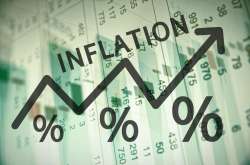Short-term inflation rise doesn't lead to growth: Expert
The classical economic theory of high inflation leading to the gross domestic product (GDP) growth will not be applicable to India even if the retail inflation has touched 7.35 per cent, since the price rise is led by highly volatile food and vegetables and is a short-term spike.

The classical economic theory of high inflation leading to the gross domestic product (GDP) growth will not be applicable to India even if the retail inflation has touched 7.35 per cent, since the price rise is led by highly volatile food and vegetables and is a short-term spike.
"The current inflation is temporary, led by vegetables, as the difference between core and current inflation is almost 3.7 per cent. The inflation in January could have come down to 6 per cent. Thus, we should not be relating the headline inflation with growth. It's a short-term spike and would not lead to growth. It's a temporary phenomena", N.R. Bhanumurthy, Senior Professor at the National Institute of Public Finance and Policy, told IANS.
The core inflation excludes the more volatile items -- food & fuel from computation of the inflation index. While the retail inflation accelerated to 7.35 per cent in December on the back of rising food prices, the core inflation is still low due to subdued demand. Thus, once the vegetable prices decline, the headline inflation will return within the Reserve Bank of India (RBI) comfort zone of 4 per cent.
According to SBI, if onion prices are excluded from the headline inflation, the print comes to be 4.48 per cent.
The country is witnessing a six-year decline in the GDP growth and six-year high inflation. The previous high in retail inflation was witnessed at 7.39 per cent in July 2014, the year Narendra Modi-led government assumed office.
At that time, the inflation in 'pulses and products' was recorded at 15.44 per cent, and 'meat and fish' price rise was nearly 10 per cent.
The peculiar situation of low growth and high inflation had led former Prime Minister Manmohan Singh to warn the government in November of stagflation. Singh had said the Indian economy was entering a stage of stagflation, with inflation being high and demand stagnant.
The USA had similar experience in the 1970s. During the stagflation, the GDP rises slowly, below the desired level, high inflation persists and unemployment remains high due to low production.